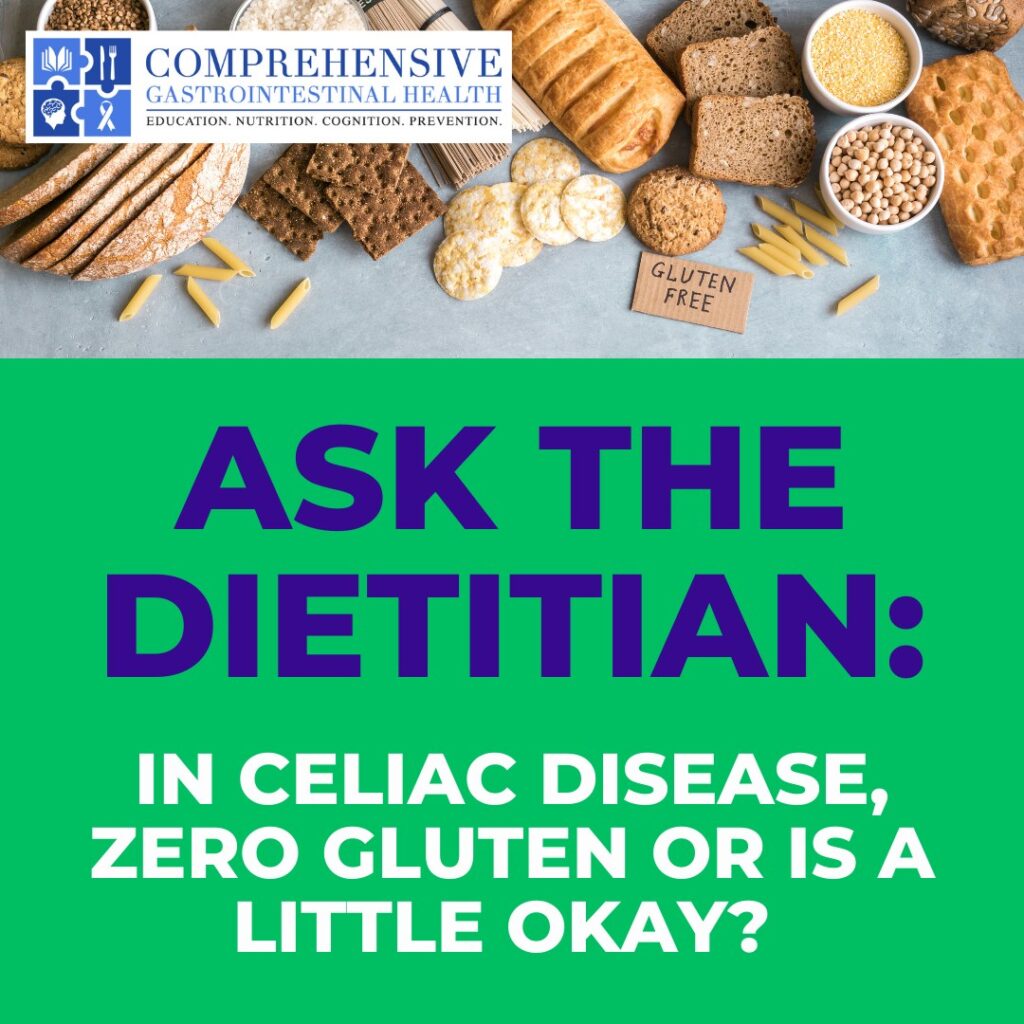ASK THE DIETITIAN: CELIAC DISEASE, ZERO GLUTEN OR IS A LITTLE OKAY?

“I was recently diagnosed with celiac disease. Should I completely avoid gluten or is a little ok?”
The only effective treatment for celiac disease is a strict gluten-free diet, excluding all forms of wheat, barley and rye. Since gluten can “hide” in many processed foods or cross-contaminate gluten-free products, careful avoidance reduces the risk of future health complications.
In patients with celiac disease, gluten is seen as a foreign invader, activating the immune system to wage an attack on the villi of the small intestine. This can drastically reduce the surface area where nutrients are absorbed. Left untreated, even small amounts of gluten can cause malnutrition and increase the risk of more severe medical conditions.
We can look to results from a multicenter, placebo-controlled randomized control trial that helped establish the safety threshold for gluten intake for those with celiac disease. All participants followed a tightly controlled gluten-free diet before and during the study. Patients were divided into groups that ingested capsules with 0, 10, or 50 mg of gluten for 90 days. (For reference, 50 mg of gluten equals about 1/70th of a slice of bread.) Clinical, serologic and histologic evaluations of the small intestine were completed before and after the gluten challenge. Results showed that the 50 mg gluten capsule induced significant villous damage to the small intestine. The 10 mg capsule produced no damage; however one patient developed a clinical relapse in symptoms.
The FDA helps celiac disease patients avoid gluten by requiring that gluten-free foods contain 20 parts per million of gluten or less (.002%). For reference, a 1-ounce slice of gluten-free bread contains 0.57 mg of gluten, significantly below the aforementioned threshold. CGH registered dietitians further empower patients by:
- Explaining the components of a gluten-free diet
- Reviewing gluten-free grain swaps
- Offering education on label reading of packaged foods and supplements
- Discussing issues related to cross-contamination at home and in restaurants
- Confirming the safety of supplements and alcohol
- Providing an array of reliable resources to optimize diet quality and answer ongoing questions or concerns
Comprehensive Gastrointestinal Health’s team of registered dietitians are experts in gastrointestinal and weight management nutrition concerns. Call 224-407-4400 or email info@compgihealth.com to schedule an appointment with our doctors, nurse practitioners, registered dietitians, or behavioral health providers at one of our convenient locations in Northbrook or Libertyville. Virtual and in-person visits are available!
Source: Catassi C, Fabiani E, Iacono G, D’Agate C, Francavilla R, Biagi F, Volta U, Accomando S, Picarelli A, De Vitis I, Pianelli G, Gesuita R, Carle F, Mandolesi A, Bearzi I, Fasano A. A prospective, double-blind, placebo-controlled trial to establish a safe gluten threshold for patients with celiac disease. Am J Clin Nutr. 2007 Jan;85(1):160-6. doi: 10.1093/ajcn/85.1.160. PMID: 17209192. See less
